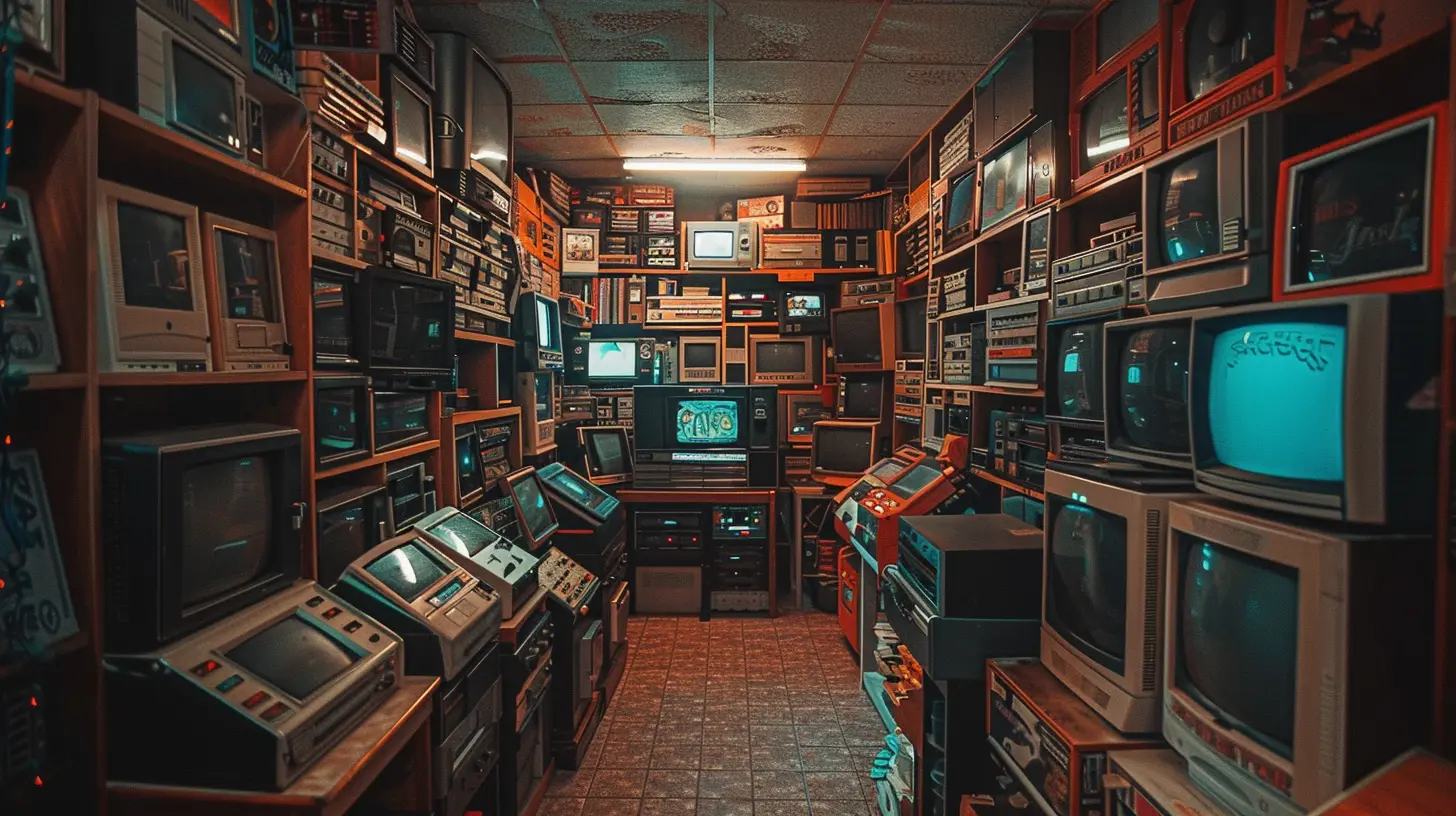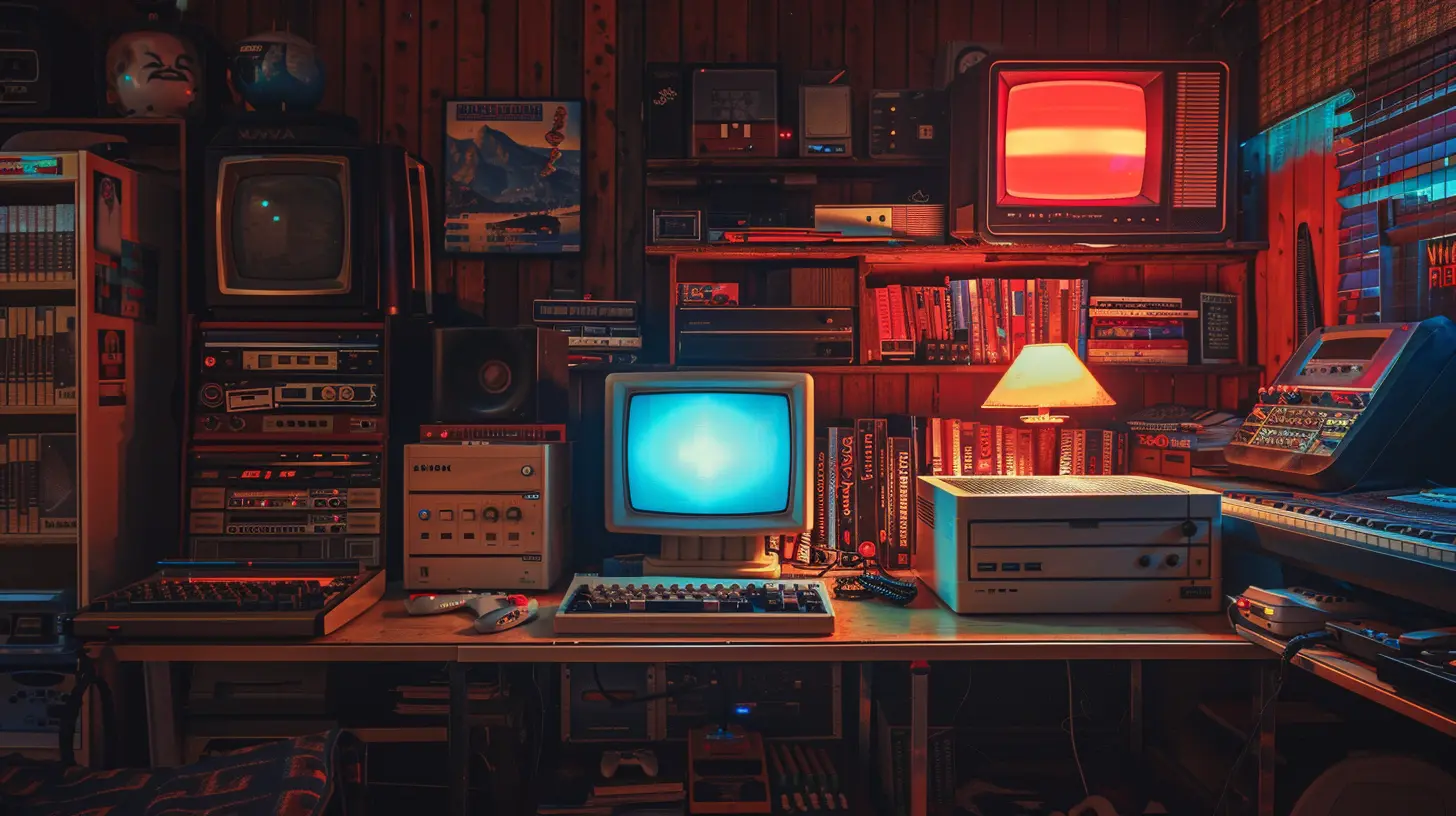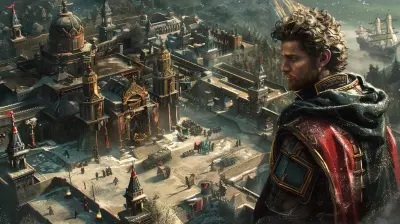Podcasts That Celebrate Retro Gaming Without the Nostalgia Trap
4 October 2025
Let’s face it—retro gaming is having a serious moment. We've all seen pixelated screenshots flood social feeds, heard the blips and beeps of chiptunes creeping into playlists, and spotted those classic cartridges being lovingly displayed like museum pieces. But here's the thing: most of the time, retro gaming talk gets stuck in a nostalgia loop. You know the kind—rose-tinted monologues about "the good ol' days" that never quite touch the deeper reasons why those games mattered beyond our childhoods.
It’s easy to get lost in memory lane. And honestly, there’s nothing wrong with a little nostalgia now and then. But some of us crave more. We want thoughtful reflection, sharp analysis, and creative conversations that celebrate old games on their own merits—without simply saying, “Wow, remember this?”
So today, we're talking about something special: podcasts that celebrate retro gaming without falling into the nostalgia trap. These gems go beyond basic memory-jogging and actually dig into the art, design, cultural impact, and legacy of older games like they’re living, breathing parts of gaming history.

Why Avoid the Nostalgia Trap?
Before we dive into the podcast goldmine, let's unpack why this even matters. Nostalgia is a powerful lens—it colors our memories, filters our opinions, and sometimes blinds us to the actual qualities of the things we remember.When we rely only on nostalgia:
- We romanticize flaws in old games and ignore the innovations in new ones.
- We reduce retro games to childhood memories instead of analyzing them critically.
- We miss opportunities to connect the past with the present and future of gaming.
Podcasts that dodge this trap manage to keep the magic of retro games alive while still looking at them with clear eyes and hungry minds.

1. Retronauts – The King of Context
Let’s start with the OG of retro game podcasts. Retronauts has been around in one form or another since 2006, and it’s not just about saying “remember when.” What sets Retronauts apart is its dedication to context. The hosts—notably Jeremy Parish and a rotating panel of experts—treat retro games like you’d treat a historical artifact.They examine:
- The development stories behind the games
- The industry climate at the time
- The design choices and how they hold up now
Instead of painting everything in nostalgia blush, Retronauts does the work of explaining why a game was important, what it did right (and wrong), and how it influenced the industry. You walk away from each episode feeling smarter, not just sentimental.
Want to listen to an episode on EarthBound and actually understand its cultural roots? This is your jam. They dig into Japanese pop culture, 90s marketing, and even localization strategies. Yeah, it's that deep.

2. Back in My Play – Emotion Meets Insight
Now, this one toes the line, but stick with me. Back in My Play isn’t afraid to get emotional—this is where real love for retro gaming shines—but here’s the twist: the hosts don’t just indulge in memories. They revisit and replay old games with fresh eyes.It’s like going back to your childhood home and realizing the backyard is way smaller than you remember. There’s honesty in that. The podcast encourages fans to reassess their old favorites and rethink their legacy.
Some episodes even include guests who worked on the actual games, offering first-hand insight on what it was like behind the scenes. So instead of “Gee, wasn’t this game cool?” it’s more like, “Here’s how this game was made, what we learned from it, and what it means today.”

3. Cane and Rinse – A Deep Dive Clinic
If you love thoughtful analysis, Cane and Rinse is your next weekly ritual. This podcast is the academic course your game-loving heart didn’t know it needed. It’s structured, focused, and often deeply emotional—in the best way possible.The show picks one game per episode and uses it as a springboard for intelligent (but still accessible) discussion. And they don’t sugarcoat anything. If a game doesn’t age well, they’ll say it. But they’ll also explain why, referencing game design principles, player psychology, and even cultural shifts since the game launched.
The retro episodes of Cane and Rinse are particularly standout. You’ll hear titles like Chrono Trigger or Silent Hill get examined like masterworks of literature. It’s a podcast that respects your time and your brain—and one that believes old games deserve to be treated like art, not just childhood toys.
4. The Retro Hour – Industry Stories with Substance
The Retro Hour is a brilliant blend of interviews, news, and deep retro gaming insights. What makes it special is how often the hosts—Dan Wood and Ravi Abbott—sit down with developers, composers, and artists from gaming’s earlier days. We’re talking about the unsung heroes of pixel art, early 3D, and MIDI soundtracks.What’s beautiful here is perspective. These aren’t just stories of “how it used to be.” These are stories of creativity, constraint, and community. The guests talk about how they pulled off wizard-level coding on 8-bit systems or what it was like pioneering new genres when everything was still uncharted territory.
It’s like hearing war stories from musicians who invented rock 'n' roll using just a ukulele and a dream.
5. No Cartridge – Critical Theory Meets Retro Gaming
No Cartridge is not only about retro gaming, but when it goes retro, it goes deep. Host Trevor Strunk brings a unique academic flavor to the whole discussion. He invites you to think about games—especially older ones—as cultural texts ripe for analysis.This podcast might not be for everyone, especially if you're used to casual chatter. But if you want to geek out over the political subtext in Metal Gear Solid or the philosophical undertones in Yume Nikki, oh boy, you're in for a ride.
The retro episodes here don't wave around nostalgia like a flag. They explore how older games reflect the values of their time and how those values hold up (or don’t). It’s smart, edgy, and totally unafraid to ask hard questions.
6. Gaming Historian's Audio Companion – Facts Over Feels
Gaming Historian is best known as a YouTube channel, but its occasional audio components are worth checking out too. What we get here is history—actual researched, cited, documented history of games, companies, and consoles.There's no “I remember loving this!” fluff. Instead, it’s about who made it, why they made it, and what happened after it came out. Norm Caruso, the mind behind the project, keeps his tone level, warm, and educational.
It’s history class... but for cartridges and controllers.
What Makes a “Good” Retro Podcast Without Nostalgia?
Let’s distill it down. The best retro gaming podcasts that avoid the nostalgia trap do a few key things:1. They analyze, not idolize – They don't just say a game was great. They tell you why.
2. They give context – Historical, cultural, and technical backgrounds are covered.
3. They invite diverse voices – Historians, developers, critics—all get time at the mic.
4. They’re honest – If an old game sucks now, they’ll say it (kindly).
5. They connect past to present – Linking the influence of retro games to today’s industry and trends.
Why This Matters
Games aren’t just digital playthings. They’re cultural artifacts. They’re shaped by technology, politics, society, and creativity. And when we trap retro gaming in the amber of pure nostalgia, we risk turning something vibrant and alive into just another rerun on a dusty VHS.By engaging with podcasts that look deeper, we can start to see the real magic. Not just "I used to love this," but "This game changed things. Here's how."
That’s a different kind of love—one rooted in curiosity, respect, and joy. And honestly? It’s way more satisfying.
Bonus Tip: How to Find More Retro Podcasts (That Don't Just Pander)
Want to discover even more shows that respect retro games without worshipping them blindly?Here’s a quick trick: Search using terms like “retro game analysis,” “video game history,” or “critical classics podcast.” Avoid anything with too many “90s kids remember” vibes in the title, and read a few episode titles first. The good ones will tell you straight up that they’re digging into game mechanics, developer interviews, or historical impact. And those are the ones worth your time.
Final Thoughts
Retro gaming deserves better than memory lane. It deserves curiosity, analysis, and maybe even a little tough love. These podcasts offer all that and more. So next time you're in the mood to revisit the classics, pop in your earbuds and try one of these thoughtful shows. You’ll gain a whole new appreciation for the games that shaped us—and you'll never look at a 16-bit hero the same way again.And hey, it’s okay to feel warm and fuzzy while you listen... just don’t stop there.
all images in this post were generated using AI tools
Category:
Gaming PodcastsAuthor:

Lana Johnson
Discussion
rate this article
1 comments
Lillian McAdoo
Embracing retro joy! ❤️
October 10, 2025 at 3:09 AM

Lana Johnson
Thanks for the love! Retro gaming brings such joy, and we're excited to share those experiences without the nostalgia trap! 🎮❤️


